
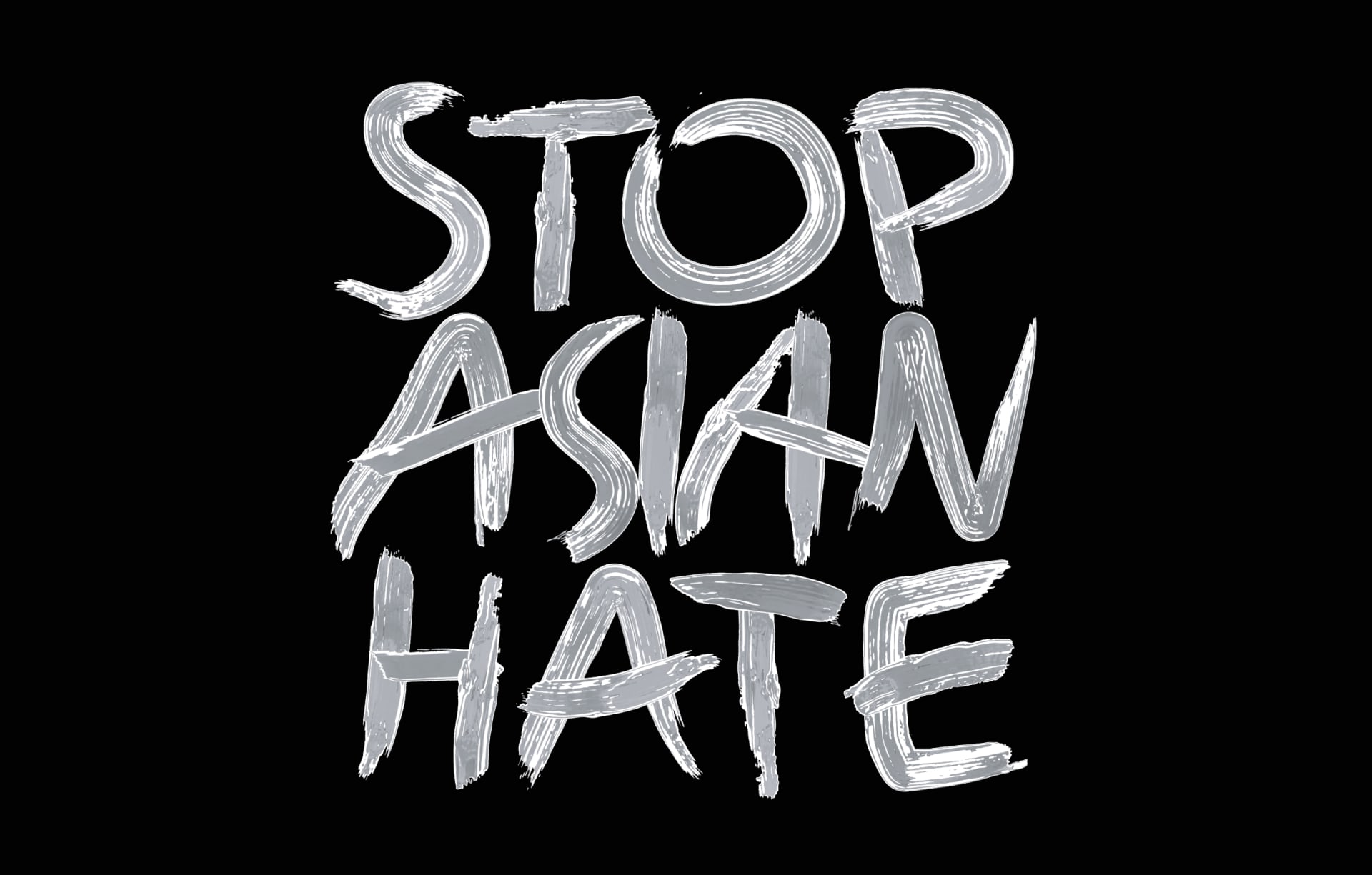
We Need to Address Anti-Asian Racism In the Music Industry
Mobilegirl, Amber Akilla, bod [包家巷], and others speak out against the upsurge of violence towards diasporic Asian communities.
The phrase “Go back to China” haunts me. As a Taiwanese-American, I am reminded by this customary sting that try as I can to speak perfectly unaccented English and keep my head down, my social inclusion will always be tenuous.
At one point in childhood, I realized the irony of being called a foreigner in my own home would follow me for the rest of my life. As I grew older, the remarks like “China doll” also matured, poised on the warped intersection of xenophobia and misogynistic perversion—a unique kind of humiliation that offers desire as the consolation prize for stealing away an already brittle sense of belonging. After the shootings in Atlanta, I know that these hypersexualized stereotypes of Asian women prove to be deadly.
During university, a male friend once told me that he preferred dating Asian women because they were small enough to throw around in bed. Back then, the term “fetishistic” didn’t exist in my vocabulary, but the experience left me feeling tarnished. Before my immersion into electronic music, I often struggled to find the vernacular to describe my inchoate frustrations with gender and racial bias. Club culture is what activated my comprehension of progressive politics in service of communities of color, and for that, I will be forever grateful and forever vocal.
Despite such espoused ideals, this industry has remained largely silent in response to the wave of anti-Asian and Pacific Islander violence around the world, calling into question once more the painful reality of selective, performative allyship. If a social justice movement isn’t viral, does it not warrant music media coverage? Put concisely by the actor Steven Yeun for The New York Times, “Sometimes I wonder if the Asian-American experience is what it’s like when you’re thinking about everyone else, but nobody else is thinking about you.”
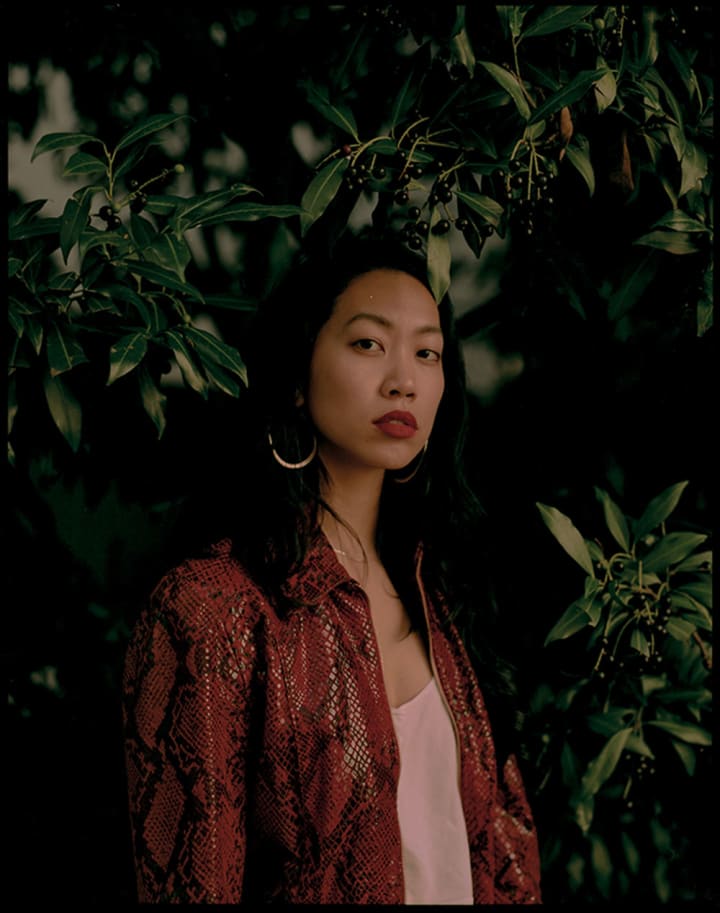
If a social justice movement isn’t viral, does it not warrant music media coverage?
Last week, a 21-year-old gunman Robert Aaron Long drove south through the Atlanta suburbs to Young’s Asian Massage Parlor, Gold Spa, and Aromatherapy spa, murdering eight people on his rampage, six of whom were women of Asian descent. Their names are Soon Chung Park, Hyun Jung Grant, Yong Ae Yue, Suncha Kim, Daoyou Feng, Xiaojie Tan, Delaina Ashley Yaun González, and Paul Andre Michels. Long, who sought vengeance against massage workers due to his self-purported “sexual addiction,” points to the nefarious habit of scapegoating victims to shift blame away from personally destructive behaviors. More broadly, it also recalls a pattern of blaming Asian people for the economic downturns and the concurrent emotional tribulations of the pandemic.
This event is the pinnacle of a wave of anti-Asian sentiment that has soared globally since the onslaught of the coronavirus early last year. Asian-Americans and Pacific Islanders across the United States, particularly vulnerable senior citizens, have been stabbed, set on fire, surrounded and beaten, thrown to the ground, slashed across the face, spat on, and verbally assaulted. Yet it is only now, in the aftermath of Long’s killing spree, that regional authorities are reconsidering these string of events as racially-motivated hate crimes. Similar reports of anti-Asian discrimination and xenophobia have arisen across Canada, New Zealand, Italy, Brazil, Russia, and the U.K—which reported a 300% rise in hate crimes towards East and South East Asians at the start of the pandemic in 2020, compared to the same quarter of previous years.
Many believe the upsurge of targeted online and offline attacks result from former President Donald J. Trump’s widely broadcasted rhetoric around the pandemic, referring to COVID-19 as the Chinese virus or the “Kung flu.” Trump’s divisive language appears to have metastasized throughout public consciousness as a justification for violent behavior towards society’s most defenseless—the elderly and immigrant working class.
This tragedy is a check-in moment for the music scene.
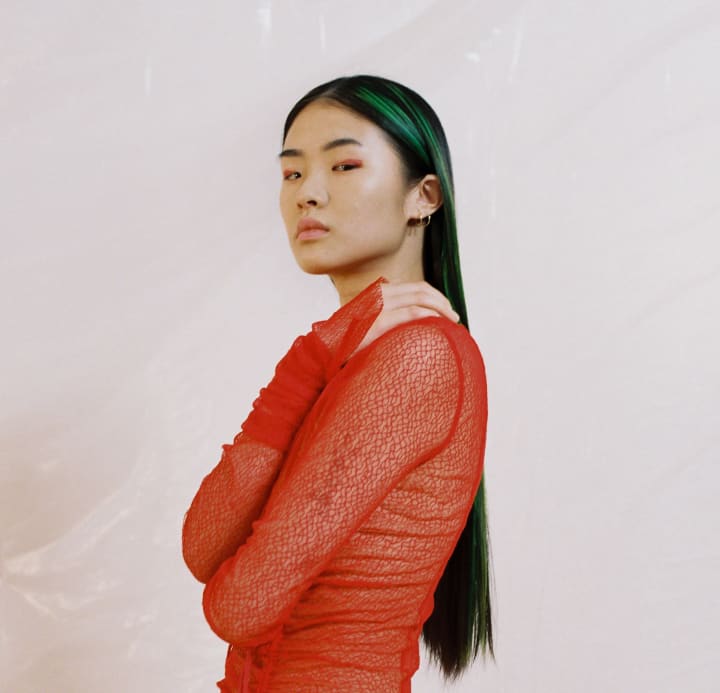
This tragedy is a check-in moment for the music scene. In April 2020, the Seoul-born DJ Fart in the Club played at Berlin’s HÖR Radio livestream, only to be greeted with a barrage of online hate speech, which she cut and superimposed onto an image of a white toilet with two black flies to post on Instagram the next day. The vitriol ranged from “DJ CORONA IN YOUR BAT SOUP” to “Are those chopsticks she’s mixing with” to a callous joke about political massacre, “Chinese – Didn’t do Tiananmen square.” She wrote in the caption, “All I could do with these comments was just creating [sic] another pile of shit.”
Mobilegirl, a Vietnamese-German producer and DJ, tells me that a key part of her public-facing career has been navigating the minefield of persistent harassment, “I’ve received pretty direct hateful, racist comments during live streams… People used to constantly ask me whether I mix my sets myself as if that’s not the bare minimum?”
Diasporic Asian artists, regarded as “perpetual foreigners,” are rendered nearly invisible in white-dominated Western markets. Major record labels often don’t take chances on such talent for this very reason. The tension of being neither eastern nor western enough is often why these musicians are left entirely out of the cultural conversation. If the arts act as a medium to communicate an individual’s three-dimensional humanity—perhaps the first step to dispelling hardwired, even deadly stereotypes, what does it mean if these musicians are repeatedly tossed aside? To compound the issue, a majority of music listeners discover new sounds via online streaming playlists on Spotify. Still, algorithmically-generated recommendations notoriously skew towards white artists—even if the user is intentionally diversifying their tastes.
Diasporic Asian artists, regarded as “perpetual foreigners,” are rendered nearly invisible in white-dominated Western markets.
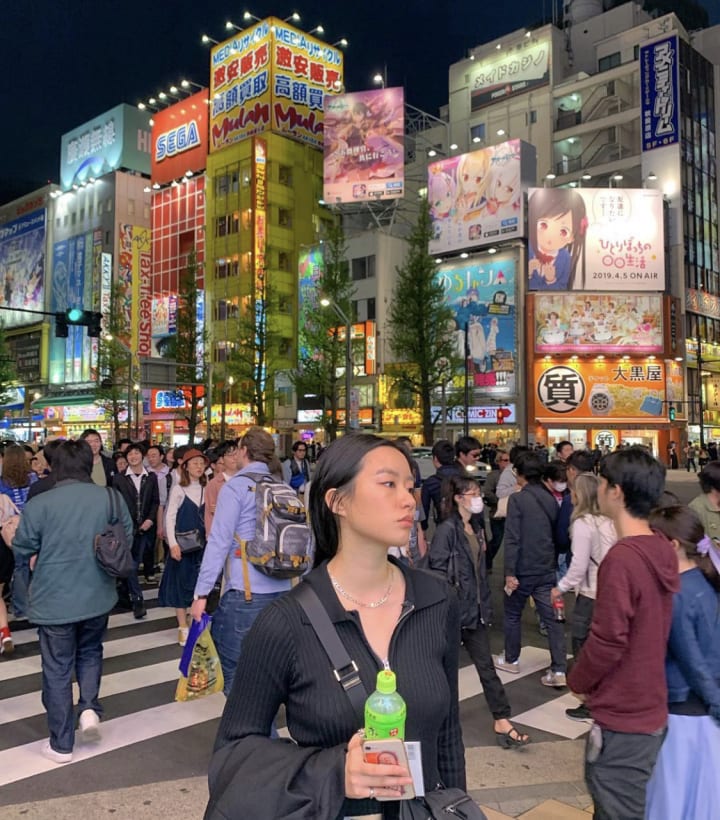
Multi-disciplinary creative and co-founder of all-women DJ collective NVSHU Amber Akilla, who is Chinese-Australian, writes to me via email, “It appears that those in the industry with the most access to resources and power to get behind artists are more likely to choose what is familiar to them or what will guarantee profit unless they work with diverse teams. These kinds of issues are part of a wider society that values instant gratification, familiarity, and profit, and it affects those with power as well as artists and listeners.”
In comparison, native Asian artists are often filtered through a lens of exoticization. Tavi Lee of Shanghai-based label Genome 6.66mbp explicitly stated this phenomenon on her Bandcamp label profile, saying, “People tend to overhype and fetishize China, perhaps seeing it as a rising, futuristic force that will save the West from its apparent stagnation.” This distant fascination with the East, as evidenced through occidental media’s “cybergoth” and “dystopian” descriptors, is an equally harmful form of othering that also hinders cultural understanding. For Akilla, it was only until she moved to Shanghai from Perth between 2017-2019 when she realized the widespread normalization of racial intolerance in the Western world. “I’ve been casually assaulted, verbally and physically, in Australian clubs, and any negative experience in Asia doesn’t even come close,” she reveals.
Sandira Blas, the lead of Creative Innovation at community space Factory Berlin and former Head of Partnerships for Akai Pro, who is half-Korean- and half-Guamanian-American, may have grown up in the world over in the suburbs of Texas, but she echoes Akilla’s statements, confessing to me that she remains traumatized from seeing racist outbursts towards her family as a child. To this day, Blas avoids traveling on public transportation out of fear for her own safety and continues to bear the financial and emotional burdens of these experiences. In response to the wave of anti-Asian violence, she says, “It would be great if more influential creatives used their platforms to address racism and encourage others to do the same. The music industry can empower the masses.”
This past summer, the industry made diligent, long-term commitments to give deference to the Black and brown forebears of electronic music following the murder of George Floyd and the Black Lives Matter resurgence. The urgency of Stop Asian Hate should be a time to demand intersectional anti-racism work and explore the power of Black-Asian solidarity.
Historically, institutional discrimination has driven a deep chasm between Black and Asian communities. The “model minority” myth, for instance, is a tactic to impose a hardworking, servile stereotype onto diasporic Asian people, meanwhile reinforcing a white supremacist status quo. The term implies that marginalized groups are somehow ranked, effectively pitting Black and Asian people against each other. It suggests that racism is a ladder of rationed privileges to uphold, rather than a toxic structure to dismantle entirely. “The issues the Asian diaspora faces are usually sneered at—I guess it comes off as so lukewarm within the embrace of the role of the model minority, when in fact, it’s such a harmful, insidious narrative,” Mobilegirl explains. She hopes the industry will “Raise money for the [Atlanta] victims, raise awareness to prevent more victims. Just be loud about it. Everyone needs to speak up more.”
The club is one of the rare spaces that explicitly states and reinforces the promise that any racist, classist, sexist, ableist, homophobic, transphobic, misogynoir, and patriarchal behavior will not be tolerated.
Even though this scene is still fighting with the demons of its inequities, nightlife remains a life force against an oppressive outside world where marginalized bodies do not matter and are not protected. The club is one rare space that explicitly states and reinforces the promise that any racist, classist, sexist, ableist, homophobic, transphobic, misogynoir, and patriarchal behavior will not be tolerated. It is here where bod [包家巷], the Chinese-American artist and Year0001 affiliate, was able to claim their non-binary identity to subvert prejudice. They explain, “The historically emasculated Asian male and sexualized Asian female leaves us with only the decision to repair and re-understand categories that originate from systems of control.”
The roulette wheel of racial injustice will continue to claim the lives of ethnic minorities in division. With these discussions at the fore, how can Asian, Black, Latino, Arab, South East Asian, and Pacific Islander communities provide mutual aid to one another? Right now is a pivotal time for all marginalized groups to demand increased media representation for such issues and to keep the music industry accountable to its pledges of diversity, inclusion, and political awareness. Grassroots movements have the power to disrupt the entire industry. As the pandemic continues to ravage our beloved venues of societal reprieve, this is the smallest utopia worth clinging onto.
Whitney Wei is the Editor-in-Chief of Electronic Beats. Find her on Instagram.
Buy Asian artists’ music on Bandcamp
Our staff recommends Aquarian, Chinabot, Ciel, Corin, Dis Fig, Eternal Dragonz, Flora Yin Wong, Gabber Modus Operandi, Gonno, Goth-Trad, Hyph11e, Kelvin T, Kim Ann Foxman, Korea Town Acid, Lawrence Lek, Mobilegirl, object blue, Okkyung Lee, Pan Daijing, Peach, Rui Ho, Scintii, Senyawa, Svbkvlt, Triad God, Tzusing, Wata Igashari, Yaeji, Yen Tech, Zaliva D.
Anti-racism, anti-hate speech resources
Anti-Asian Violence Resources masterdoc, Ich bin kein Virus (Asian German platform that publishes racist experiences towards Asian Germans), korientation (DE), Stop AAPI Hate, Asian Canadian organizations, APA Labor Alliance: Asian American Racial Justice Toolkit, NY Mag: 68 Ways to Donate in Support of Asian Communities, API Equality (Northern California), Duke U Press: Asian American Studies, Telekom #TAKEPART
Accounts to follow
Asian German Updates, DAMN*, @asianbossgirl: Asian American Authors + Books You Need to Read, @asianvoiceseurope: resources within NL and DE listed on the last slide, Asian Voices EU, @asia.art.activism : resources in the UK, @asia.art.activism: Black and Asian American Feminist Solidarities: Reading List.
Asian Performing Artists Lab: Call for applicants
Asian Performing Artists Lab (APAL) is offering Berlin-based artists with Asian backgrounds a platform for creative exchanges, collaborations, and experiments. Artists can apply with a project proposal, which can be in the form of an idea, a draft, or a work-in-progress. They work together intensively over a period of 5 days, and at the end of it, present their works-in-progress at Berliner Ringtheater under the event ‘AmnAsia’. The deadline is April 5th. Apply here.
Published March 26, 2021. Words by Whitney Wei.

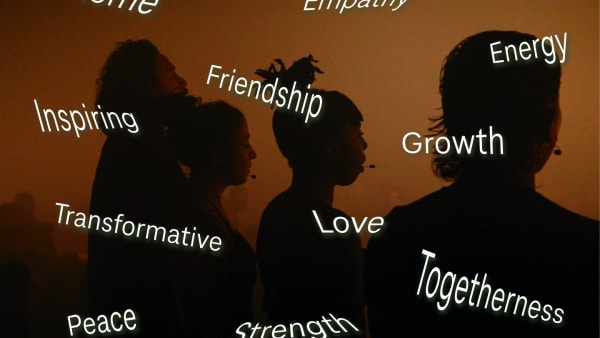

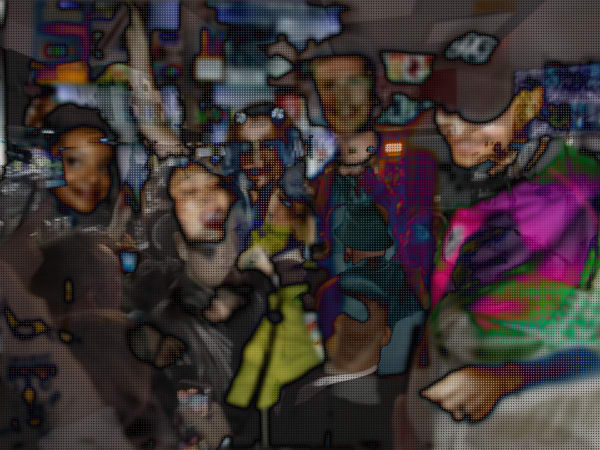








Follow @electronicbeats